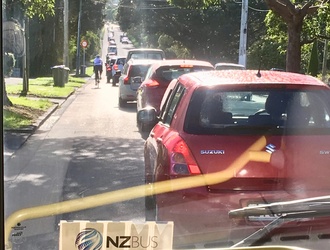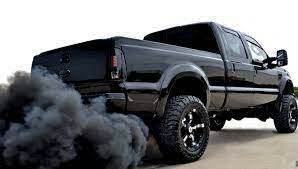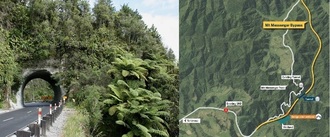-
Bring back age-based public transport subsidiesAffordable public transport means everyone can stay connected and have easy access to their places of work, study, and community. Access to public transport is especially critical for younger people. Yet, some people in New Zealand view ownership of vehicles as a sign of economic progress and success which fuels the "cars is how we move around mindset". Because of this view, the Government is putting massive amounts of funding into road projects. At the same time, the Government has made large cuts in funding for the Community Connect programme. Community Connect was a targeted package aimed at making public transport more affordable. From 1 July 2023, Community Connect provided: • half-price fares for people aged 24 and under • free fares for children aged 12 and under. It will take a lot of time for people to get out of the ‘cars first’ mindset and make different behaviour decisions. Cheaper public transport is a big stepping stone into achieving the ‘collective transport first’ goal. Increased use of public transport can lead to a decrease in reliance on private vehicles, reducing traffic congestion, lowering greenhouse gas emissions and contributing to New Zealand’s climate change mitigation goals. As young people are more aware, open to, and statistically more likely to use public transport for access to education and jobs, we need to offer a hand to this shift in behaviour. We are Fare Fighters, a campaign group of school students. Please sign our petition if you also want to make getting around easy and accessible for all young people! If you would like to have more information, we encourage you to explore this article - Public transport subsidies are ending. Here's how much ...RNZhttps://www.rnz.co.nz › news › national › public-transport...46 of 100 SignaturesCreated by Fare Fighters
-
Diesel-free Auckland 2025🌏 We need to accelerate our transition away from dirty fossil fuel vehicles to avert climate collapse and clean up the air our tamariki breathe. Low emission zones are now common in many European cities as a way to ensure cleaner air for people living in cities. The low emission zones tax fossil fuel vehicles and are automatically enforced by cameras that can read number plates. We often think of New Zealand as being clean and green. Yet car pollution causes the death of thousands of people in New Zealand every year! Children, pregnant women, people with lung disease and other vulnerable groups are especially affected by air pollution from cars and trucks. Recent research in New Zealand has shown pollution from fossil fuel cars is more dangerous than all other forms of air pollution. Older diesel vehicles especially cause more air pollution than petrol vehicles. 🌏 The Auckland car pool is extremely diesel reliant (23% of the New Zealand vehicle fleet), so we really need to de-incentivise the purchase and use of diesel vehicles in urban areas where people live and work. While there have been some steps to reduce harmful emissions, the number of diesel vehicles on the roads continues to rise. 🌏 If the low emission zone was phased in it could target older diesel models first, to get the worst polluting vehicles off the road first. If done right the policy will have the effect of moving more people into public transport, electric vehicles, and active transport. There can be complementary policies to encourage non-polluting vehicle use. 💚 Discouraging diesel vehicles from Auckland will help keep children healthy, prevent diseases such as asthma, and as a result improve their learning, school performance and quality of life. Given what us older generations have done to the planet and the future of our tamariki, we owe them this! 💚 🚙 Many people presently depend on diesel powered vehicles for access and mobility. As part of a just transition we support and encourage measures such as universal design, to ensure disabled, and people of all communities are not left behind. 🚗 ⇨ Air pollution from cars killing thousands of NZers yearly, RNZ ⇨ Reducing harmful vehicle emissions from road transport, Ministry of Transport ⇨ London saw a surprising benefit to fining high-polluting cars: More active kids, Grist ⇨ Low emissions zones, Denmark17 of 100 SignaturesCreated by Frederik Federspiel
-
Phase out the import and sale of cars that run on petrol and diesel.Urgent action is needed as we face a climate emergency that threatens all life on Earth. Globally, the continued global rise in sales of SUVs pushed their climate-heating emissions to almost 1bn tonnes of carbon dioxide in 2022, according to the International Energy Agency. Here in Aotearoa, transport is responsible for 37 per cent of greenhouse gas emissions and is the second biggest climate polluter after agriculture. In 2023 the gas-guzzling Ford Ranger and Toyota Hilux were the top-selling vehicles. Big SUVs are dangerous for other people on the road, particularly children, people on bikes and pedestrians, they impact people's health with more harmful pollution and they drive the climate crisis. Transport emissions have to come down, but instead of relying on fuel price increases which are unworkable and unfair for lower-income families already suffering the cost of living crisis, the Government should take action to remove the worst vehicles from our roads.280 of 300 SignaturesCreated by Nick Young
-
Make Meola Road Safe! New Zebra CrossingMeola Road can be a busy road, that gets very dangerous for school kids trying to cross the street to catch their bus. We are concerned for all our students who are putting themselves in danger by crossing such a busy road. Mistakes can be made, and we don't want to be compromising our own safety. This is very important as students are constantly at risk of being hit by a car while crossing the road to walk home or catch a bus. The safety measures that we currently have are insufficient in protecting our students.2,659 of 3,000 SignaturesCreated by WSC Travel Wise

-
Update the Advertising Standards Code for a Carbon Zero 2050The popularity of light utility vehicles and SUVs continues to be on the rise, driven by advertising. Why is this an issue? Well, such vehicles are heavier, often have diesel engines and are less fuel-efficient, therefore meaning that increased sales of them compared to lighter vehicles is linked directly to greater emissions of carbon dioxide, nitrogen oxides and other pollutants across the globe. Climate change and declining air quality are crises we must address urgently. To prevent them from further threatening public health, we should be encouraging behaviours that ensure a safe future for our descendents on this planet. At the least we should be encouraging the uptake of fuel-efficient or zero-emission forms of transport, rather than the opposite. There are a multitude of similarly profitable, alternative products (take electric utes for example) that manufacturers can produce instead that would help meet Aotearoa’s goal of reducing net emissions of all greenhouse gases (except biogenic methane) to zero by 2050, so therefore there is no valid reason for harmful goods to be promoted positively through advertising. To hold vehicle producers socially responsible and thereby pursue a healthier future for the planet and all people, we are asking for just one small regulation to be added to the Advertising Standards Code. Notes: This petition ask is based on a recommendation made in both a UK study by Boyle et al. (2021) and a study by Woodward, Wisniewski and Wild presented to the Transportation 2021 Conference. 8 of the top 10 best-selling new vehicles in Aotearoa are light trucks (utes and SUVs). https://www.greaterauckland.org.nz/2021/06/02/the-rise-of-the-urban-light-truck-what-to-do-about-it/ Photo credit: https://www.greaterauckland.org.nz/2021/06/02/the-rise-of-the-urban-light-truck-what-to-do-about-it/263 of 300 SignaturesCreated by Cassie Wood
-
No Mt Messenger Bypass - save Mangapēpeke ValleyThis new road will damage the "physically, spiritually and socially significant" Mimitangiatua River and Mangapēpeke Stream of Ngāti Mutunga, Ngāti Tama and Poutama. It will destroy 44.4 hectares of indigenous forest and wetlands that are home to dozens of threatened native species such as the North Island Brown Kiwi, Archey's frog, Long-tail Bats, Fernbirds, North Island Robins, Giant Kōkopu and Shining Cuckoo. This proposal is opposed by the Department of Conservation, Forest & Bird and landowners who are being forced from their homes. Some iwi are yet to be fully consulted and other iwi are still deciding, being so far unsatisfied with mitigation offers. Mangapēpeke means 'frog stream' and frogs are a well known environmental health indicator species. No amount of proposed tree planting and pest control can mitigate the damage actual forest removal and pest introduction this road will cause. The 'bypass' should not go ahead. It makes no sense to destroy ancient forest communities just so cars and trucks can get from A to B a few minutes quicker. The touted safety improvements do not stack up when well-known fog and black ice in the proposed area is taken into account. Nor when increased speeds will also increase accident rates. The age of large truck transportation is coming to an end as fossil fuels become ethically unaffordable. So let's be practical, do we really need a brand new $200million road? It is time to move on from fossil road projects and create a vibrant, sustainable Taranaki economy. An upgrade of the existing road makes far more sense.20,578 of 25,000 SignaturesCreated by EBailey & MDoorbar

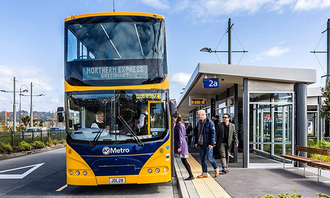
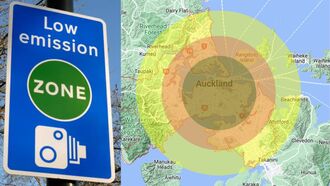
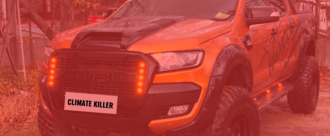.png)
